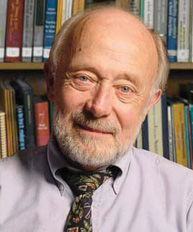 Over the years I have encountered many passionate people who were not only certain they held the only proper perspective about the Christmas story, but were equally committed to converting others to share such a view. Interestingly, I have been involved in numerous one-on-one and group conversations with those who were certain the Christmas story is a fact as it is recorded in the Gospels and also with those who are certain the story is just a fable.
Over the years I have encountered many passionate people who were not only certain they held the only proper perspective about the Christmas story, but were equally committed to converting others to share such a view. Interestingly, I have been involved in numerous one-on-one and group conversations with those who were certain the Christmas story is a fact as it is recorded in the Gospels and also with those who are certain the story is just a fable.
Marcus Borg, a progressive Christian scholar and the only author ever to appear on my top books of the year list two years in a row (2011 and 2012), recently wrote about a third option.
Namely, the Christmas stories with their miraculous elements were not intended to be “factual” in the sense of reporting what actually happened. Rather, they are early Christian testimony, written roughly a hundred years after Jesus’s birth. They testify to the significance that Jesus had come to have in their lives and experience and thought. The stories are parabolic, metaphorical narratives that can be true without being factual.
He was for them, in imagery from the birth stories themselves, the light in the darkness, the new Moses who confronts a new Pharaoh, the fulfillment of ancient Israel’s and humanity’s hopes and yearnings, the way of return from exile, the Spirit and Word of God revealed and embodied in a human life.
That is the testimony of the stories of Advent and Christmas. To make their truth dependent upon the factuality of the miraculous as some Christians and some rejecters do is mistaken. It distorts what they are about.
So What?
Advent and Christmas should be times when people who seek to follow the Way of Jesus intentionally reconnect with the biblical stories. This quest should not be limited by assumptions that we are limited to categorizing the accounts as facts or fables. My hope is that, in the words of Marcus Borg, we might come to see Advent and Christmas in a new way understanding that they are “about the biblical hope and way, the path, to a new kind of world. They are about our rebirth and the world’s rebirth.”
- Review your own understanding, Which of the three options fits your perspective as a child, teen, young adult? now?
- If your perspective has changed over the years, how and why do you think the evolution occurred?
- How might one more effectively encourage meaningful conversations between Christians holding all three perspectives?